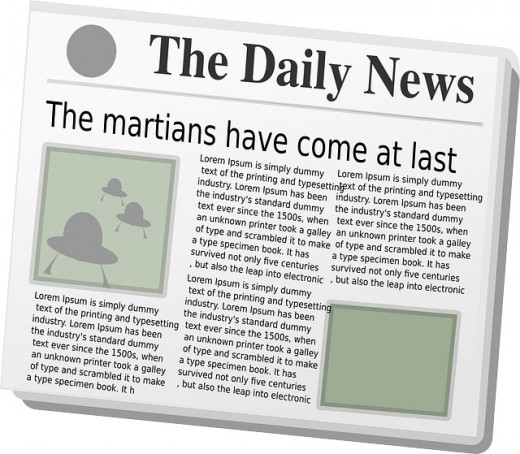Reacting to Bad News

9 Ways to React to Bad News
When bad news on television overwhelms us, our instincts tell us to shut it off quickly. I know many people who will evade the topic if their friends shower them with bad news.
Blaming them for this reaction is difficult. We want to avoid anything that sounds or seems remotely negative.
Avoidance, however, has its drawbacks. We need awareness of how we respond to friends who tell us about bad news that affects them, or to unpleasant news that, unfortunately, makes up the bulk of our prime time TV menus.

Why Do We Shun Bad News?
1. It prompts us to take unwanted action.
2. Bad news is graphic.
3. It causes unpleasant emotions.
4. You may not empathize
A. Why people Avoid Negative News
Unpleasant news, of course, leaves an unpleasant, cloying taste in our mouths.
It prompts us to take unwanted action. We have to do what we dislike. No one enjoys having to solve daunting problems, or the awkward moments that happen when we have to condole friends.
It is sometimes graphic and, therefore, paralyzing. Bad news causes unpleasant emotions that none of us want to acknowledge.
Negative information is hard to react to because we may not empathize with the situation. We may not know how to react instantly the to news that a friend has cancer, or has lost a job.
Instinct tells us to evade the news as quickly as possible. We want to avoid the cloying negativity that comes with it.

Avoiding bad news is dangerous because....
1. It weakens resistance.
2. It builds complacency.
3. It builds fear.
I would avoid bad news because....
B. The Danger of Avoiding Tough News
Avoid it, though, we cannot. We should not disregard such news but instead, learn to deal with it in the best way possible.
Avoidance weakens our resistance. As we sweep bad news under the rug, our capacity for it weakens. We become less able to control ourselves or our emotions.
It then builds fear. Fear of receiving bad news is seldom healthy, for it is a given. There are times, like it or not, when we will receive it.

We defend ourselves from bad news by..
1. Build positivity.
2. Have willingness to learn.
3. Have a sense of humor.
4. Realize that change is constant.
C. Buildiing Resilence To Tough News
The key to dealing with tough news is to build our resilience to it. It goes without saying that it takes time and effort.
Positivity must be built. Everyone tells us to embrace the positive, but this is only done over time. We do so by surrounding ourselves with positive company and taking the time to hone a positive imagination.
Apart from trying to build a positive attitude, we must have the willingness to learn. The function of failure is to teach; the less resistant we are to it, the greater ability we have to overcome it. The more we learn from out errors, the more tools we have to overcome negative circumstances.
And then, a good sense of humor is essential. Laughter releases necessary endorphins and helps bonding. It relieves the stress of negativity.
We must also accept the constancy of change, no matter how difficult it is. Change is bad news in itself, because it means making tough decisions and taking unwanted action to push ourselves forward. Yet, we must have contingencies handy,
no matter how distasteful it is.

How should we react to bad news?
1. Thank people for the data.
2. Do not hide your upset.
3. Be direct, yet tactful.
4. Do not pry unnecessa
D. How to React to Bad News
Reacting to bad news is a little, gracious art that involves a little tact. We can definitely respond to bad news a little more positively.
1. Thank people for the data.
This is definitely the hardest to do, but we have to first thank the bearer of the bad news, especially if it is of a professional nature.
By doing this we put a positive spin on the news. We show our graciousness and strange as this may seem, makes it a wee bit more palatable.
2. Do not hide your upset.
Being gracious about the bad news does not mean that you are any less upset.
Hiding that you are upset is virtually impossible, so do not try. Allow all parties to absorb the shock of the news.
3. Be direct, yet tactful.
If you are the bearer of bad news, be direct, yet tactful. Couching bad news just prolongs it and makes it worse.
4. Do not pry unnecessarily.
Moreover, do not pry unnecessarily. Asking too many questions is intrusive and adds unnecessary pressure. It may also come across as unempathetic, though your intentions are otherwise.
Other relationship hubs by Michelle Liew
- Communication in marriage and relationships: My stor...
With communication, two opposites can come together in a marriage. Here are some tips for good communication in relationships! - Managing conflict in relationships: a delicate yet n...
Conflict management is a most delicate yet necessary task. Some stratgies and things to consider to make the process easier. - Battling the green-eyed monster:overcoming jealousy ...
Managing jealousy in relationships can be important. - How liking different styles of music can affect rela...
Understanding how different tastes in music can affect relationships and how this knowledge can be used to help love blossom.








